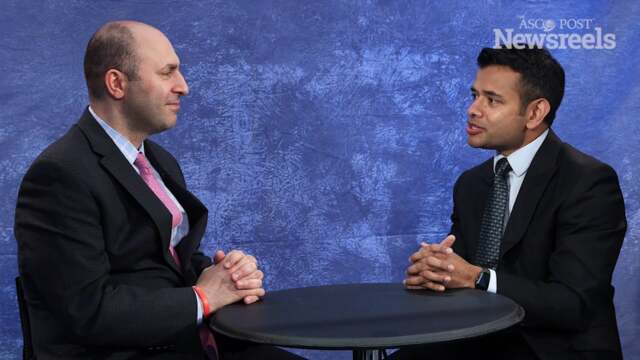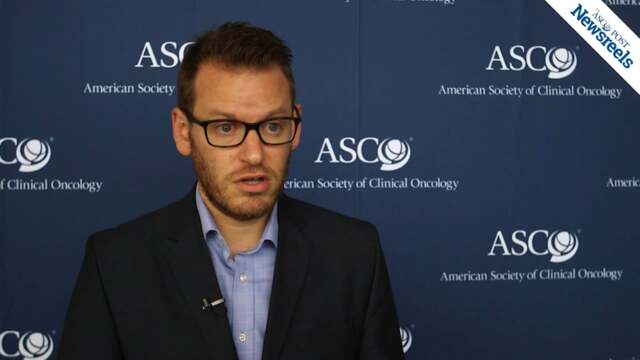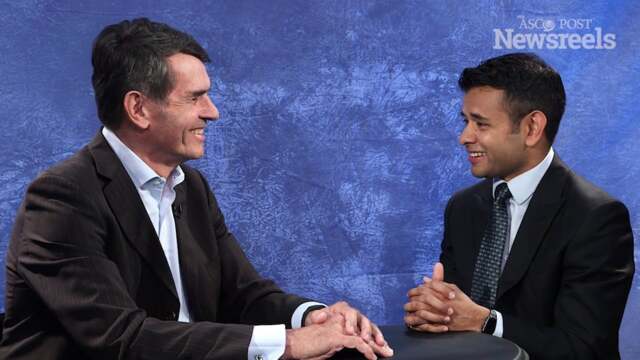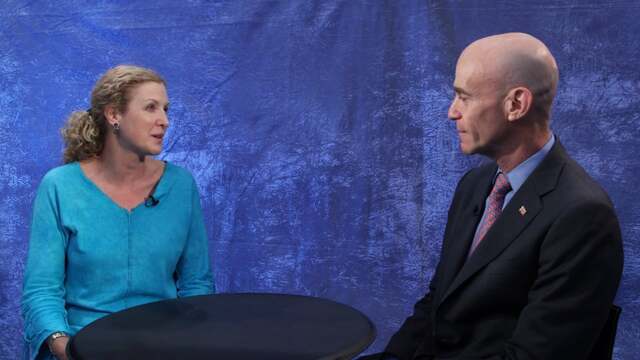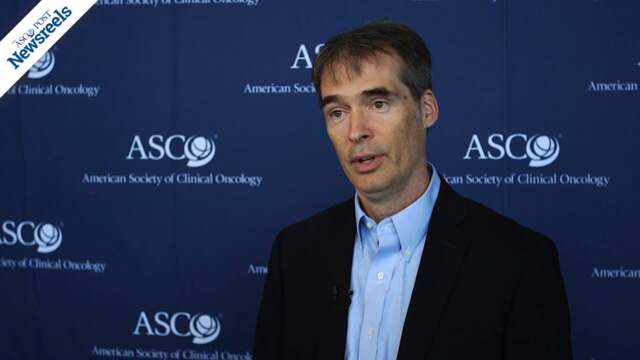Viviane Hess, MD, on Managing Stress in Newly Diagnosed Patients
2017 ASCO Annual Meeting
Viviane Hess, MD, of the University of Basel and University Hospital Basel, discusses a Web-based stress management tool, called STREAM, designed to reduce stress and improve quality of life for newly diagnosed cancer patients, who often lack psychological support. (Abstract LBA10002)
Sumanta K. Pal, MD, of City of Hope, and Toni K. Choueiri, MD, of the Dana-Farber Cancer Institute, exchange views on the key papers in renal cell carcinoma presented at ASCO’s 2017 nonprostate GU oral abstract session. (Abstracts 4504, 4505, 4506, 4507, 4508)
Daniel A. Goldstein, MD, of Emory University and Rabin Medical Center, discusses his study findings that show nearly $1 billion in savings when patients receive personal weight-based doses instead of a predetermined fixed dose for treatment of PD-L1-positive non–small cell lung cancer. (Abstract 9013)
Bernard J. Escudier, MD, of Gustave Roussy Cancer Campus, and Sumanta K. Pal, MD, of City of Hope, discuss phase III study findings on adjuvant sunitinib used to treat high-risk renal cell carcinoma, which validate the 16-gene Recurrence Score in patients with stage III disease. (Abstract 4508)
Lisa A. Carey, MD, of the University of North Carolina, and Mark E. Robson, MD, of Memorial Sloan Kettering Cancer Center, discuss phase III study findings on olaparib monotherapy vs chemotherapy for patients with HER2-negative metastatic breast cancer and a germline BRCA mutation. (Abstract LBA4)
Ronald J. Buckanovich, MD, PhD, of the University of Michigan, discusses study findings on health-related quality of life with maintenance olaparib compared with placebo following chemotherapy in patients with germline BRCA-mutated platinum-sensitive relapsed serous ovarian cancer. (Abstract 5507)
